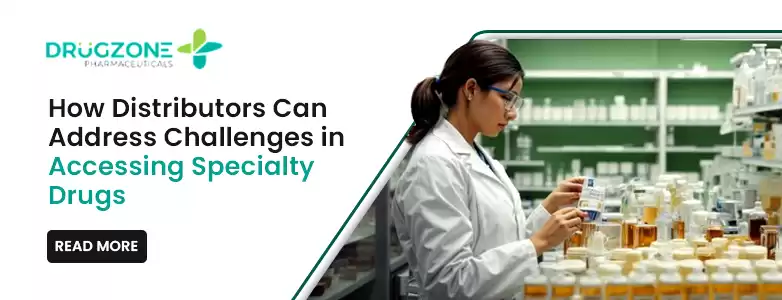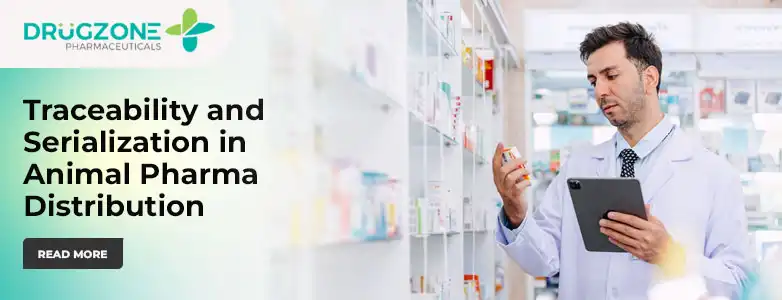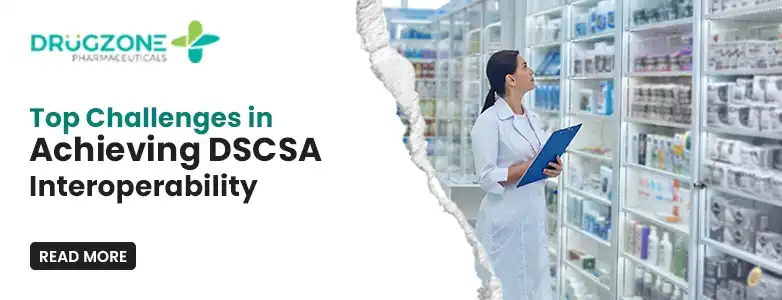
Posted On: May 11, 2024
How Distributors Can Address Challenges in Accessing Specialty Drugs
The healthcare scenario is continuously changing, especially when it comes to specialty drugs. The cost of these drugs that are used for treating complex diseases like cancer, multiple sclerosis and rheumatoid arthritis among many others might be prohibitive and they may not be available easily. To mitigate such issues pharmacy wholesaler distributors play a key role in ensuring that patients do not experience unnecessary delays while accessing healthcare services.
What are Specialty Drugs?
Specialty drugs also called specialty pharmaceuticals belong to a category of high-cost drug treatments for complex, chronic, or rare medical conditions. Some examples of these medications include the therapy prescribed for hemophilia, H.I.V., psoriasis, hepatitis C, inflammatory bowel disease and cancer among other complex or uncommon chronic ailments. These medications could be biologics derived from living cells and therefore can be infused or injected directly into patients as well as coming as oral medicines.
Challenges in Specialty Drug Distribution
1. High Costs and Reimbursement Issues:The high price tags on specialty drugs make their inventory management a significant financial risk to every pharmaceutical distributor. Meanwhile, insurers have strict coverage criteria making navigating the reimbursement landscape difficult.
2. Complex Storage and Handling: In order to maintain the efficacy of many specialty drugs; they need specific temperature controls during storage and handling. Hence wholesale pharmacy partners require logistics capabilities and advanced infrastructures.
3. Regulatory Compliance: The regulations surrounding speciality drugs are very tight such that there are specifications on tracking, reporting and ensuring drug safety and effectiveness. This is more challenging with smaller distributors concerned about compliance.
4. Limited Availability and Access: Access to specialty drugs might be restricted by limited availability through exclusive distribution agreements with only a few suppliers to whom they can be sold.
Strategies for Overcoming These Challenges
1. Leveraging Technology & Analytics
Advanced analytics investment will help pharmacy distributors stock manage better, and forecast demand more accurately thereby reducing business risks related to stocking expensive specialty drugs. Blockchain technology could also be used to improve transparency and compliance throughout the entire supply chain.
2. Engaging Manufacturer Partnerships
Strong relationships with pharmaceutical manufacturers will provide distributors with opportunities to access specialty drugs more efficiently. Production forecasts, exclusive contracting opportunities and patient/provider support programs can be communicated directly through collaboration.
3. Specialized Training for Handling and Compliance
Specific training programs for staff can ensure specialized storage, handling and regulatory compliance requirements of speciality drugs are met. Thus such a distributor becomes a reputable partner in the speciality drug market.
4. Cost Management Strategies Implementation
To manage the high costs that come with specialty drugs, one can employ various fiscal strategies including consignment inventory models for instance. It allows pharmacy distributors to hold onto stock on behalf of suppliers without any immediate financial commitment thus reducing risk while improving cash flow.
Drugzone’s role in overcoming these challenges
Drugzone is crucial in overcoming constraints in accessing specialty drugs by streamlining distribution and procurement processes. Their ingenious platform connects the gap between healthcare providers and manufacturers so that patients get their needed medications promptly without holdups. Drugzone ensures the availability of rare and specialized treatment by leveraging advanced logistics and a strong network, thereby enhancing patient outcomes as well as driving towards a more efficient healthcare delivery system. This represents a major step forward within the pharmaceutical industry which now makes it easier for people who need them most patient-friendly at large in order to overcome accessibility barriers of specialty drugs itself through this kind of commitment they have shown themselves to be truly an advancement from previous times where it was difficult even for those who very much required them too.
Frequently Asked Questions (FAQ)
Q: What makes specialty drugs more challenging to distribute compared to standard medications?
A: Specialty drugs require special handling and storage conditions, such as refrigeration or protection from light; in addition, they are costly making the effective management of secure supply chains highly crucial.
Q: In what way can distribution services reduce prices of speciality meds?
A: When distributors purchase these drugs in bulk from the manufacturers they get discounts which then enable them to sell at cheaper prices to patients who could not afford to buy them.










